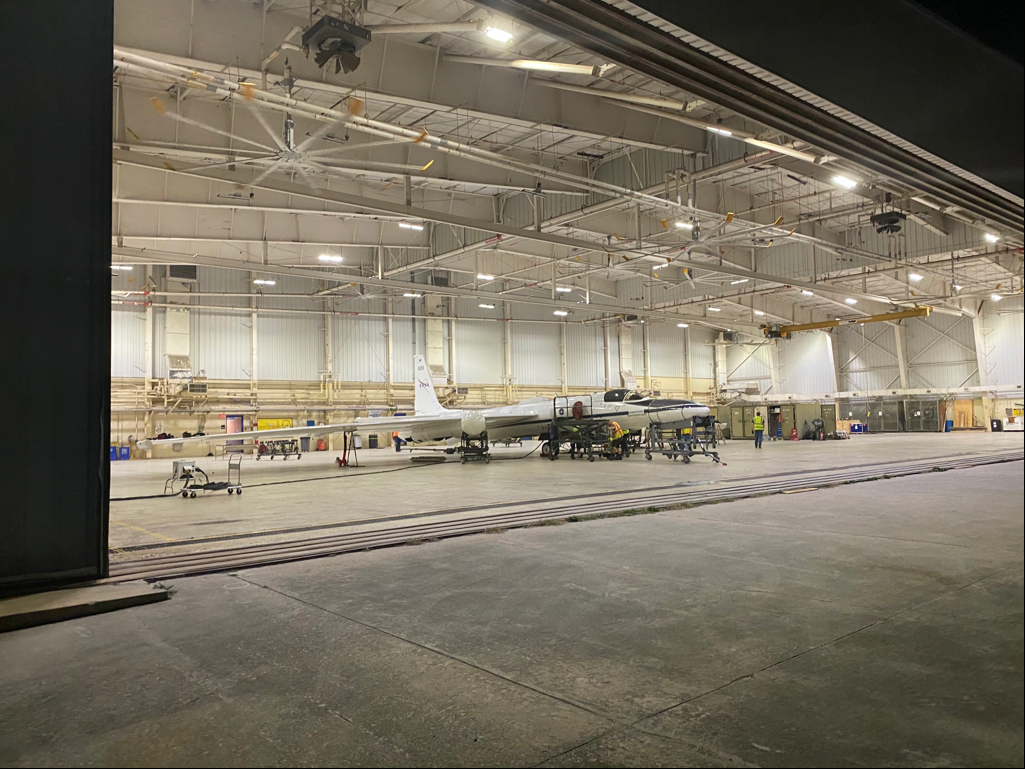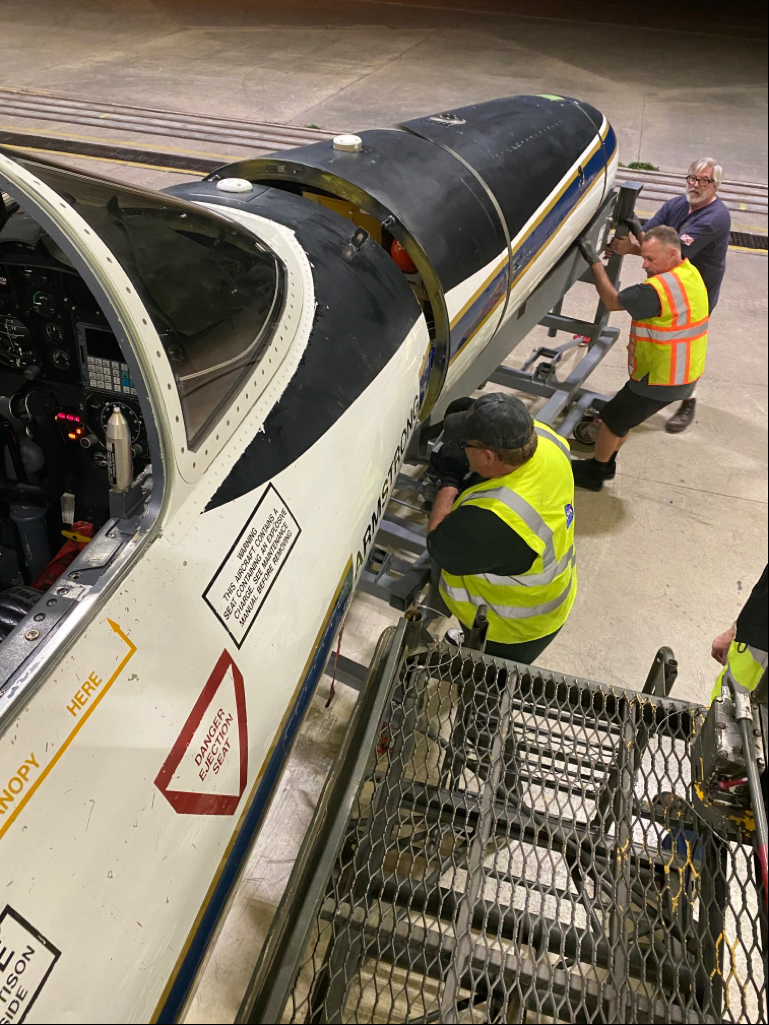Pics: 65 Year old American technology is still KICKING digital ass! The amazing US Plane: NASA deploys its unique ER-2 plane to Hunter Army Airfield – My Comments
[I've been watching American technology, and my favourite plane is the SR-71 Blackbird. It was the successor to the U-2 spy plane. Now the U-2 did great until the Russians shot them down. The SR-71 was a fantastic, unbelievable successor. It could outrun missiles. It was an incredible feat of engineering, in my view, one of the finest things to ever come out of the USA.
Share on FacebookShare on Twitter
The National Aeronautics and Space Administration, commonly known as NASA, has deployed its unique ER-2 weather research plane to Hunter Army Airfield, located in Savannah, Georgia.
An unusual plane is calling Hunter Army Airfield home for the next few months, according to Fort Stewart Public Affairs Office.
On Jan. 15, NASA landed its ER-2 weather research airplane at Hunter. Pilots, scientists, and ground crew will call the installation home through March 1 while they fly missions to study east coast snow storms.
The ER-2 flew to Hunter from NASA’s Palmdale facility. The aircraft is outfitted with various sensors to study the winter weather.
NASA will use the data collected over the two-month campaign studying snow-related weather to better predict and understand snow storms.
NASA research test pilot Tim Williams is one of the two pilots flying the ER-2 out of Hunter. He said the ER-2–NASA’s version of the Air Force’s U-2 spy plane–can fly up to 65,000 feet.
“We’re pretty much over the entire atmosphere at that point,” Williams “It’s very similar to what a satellite can do.The difference between us and a satellite is we can bring the instrument down at the end of the day and work on it.”
NASA chose Hunter for several reasons, including available hanger space and the weather in the Savannah area..
“Eventually this airplane has to come down and land,” Williams said. “If we were up in New York state, I might have to land in that snow storm. And this airplane is not really good at that.”
Hunter Army Airfield is no stranger to NASA missions; in the past, NASA identified the runway as an alternate landing site for the space shuttle.
 NASA’s ER-2 weather research plane is bedded down for the night in a Hunter Army Airfield hanger Jan. 15. The plane is flying missions out of Hunter through March 1 to study east coast winter storms. (Photo by Kevin Larson)
NASA’s ER-2 weather research plane is bedded down for the night in a Hunter Army Airfield hanger Jan. 15. The plane is flying missions out of Hunter through March 1 to study east coast winter storms. (Photo by Kevin Larson) NASA ER-2 ground crew members remove sensors and equipment from the aircraft after it arrives at Hunter Army Airfield Jan. 15. The plane is flying missions out of Hunter through March 1 to study east coast winter storms. (Photo by Kevin Larson)
NASA ER-2 ground crew members remove sensors and equipment from the aircraft after it arrives at Hunter Army Airfield Jan. 15. The plane is flying missions out of Hunter through March 1 to study east coast winter storms. (Photo by Kevin Larson)


